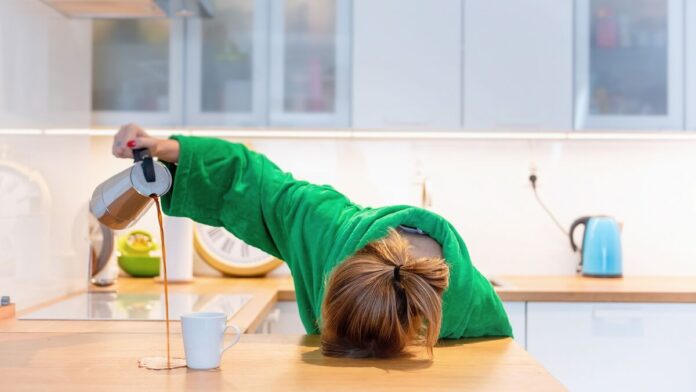Most of us are not getting enough sleep overall, research has found, making us age faster and increasing the risk of multiple health conditions and even early death.
It’s well-established that adults need between seven and nine hours’ sleep each night. But it seems regularly achieving that is out of reach for most.
In a study of the sleep patterns of thousands of adults, researchers from Adelaide’s Flinders University found that almost one-third of people (31 per cent) have an average sleep time of less than seven hours a night.
The study, published in the journal Sleep Health, analysed the sleep patterns of 67,254 adults (52,523 men and 14,731 women) using sleep data recordings made by Withings Sleep Analyzer sensors placed under the mattress. Sleep patterns were measured over a period of nine months.
The sensor data also revealed just 15 per cent of us manage the recommended amount for five or more nights each week. Even among those who did manage an overall average sleep time of between seven and nine hours, around 40 per cent of nights still fell outside the ideal range.
Women generally had longer sleep durations that men, and middle-aged people recorded shorter sleep durations than younger or older participants.
It paints a bleak picture of the demands of modern society and the pressures being placed on just about everyone.
Professor Hannah Scott, lead author of the study, says it is clear getting adequate sleep is out of reach for many.
“Clearly getting the recommended sleep duration range frequently is a challenge for many people to achieve, especially during the working week,” she says.
“This is crucial because regularly not sleeping enough – or possibly too much – is associated with ill effects and we are only just realising the consequences of irregular sleep.”
Lack of sleep speeds up ageing
One of those consequences is it can hasten the ageing process. Previous studies have shown that regularly getting less than seven hours of sleep a night causes cells to break down and die at a faster than normal rate – literally ageing you faster.
This can have a disastrous effect on your likelihood of developing a number of health conditions.
Regularly sleeping for less than six hours a night is associated with a higher risk of hypertension, obesity and heart disease.
Getting between six and seven hours each night has been linked to digestive and mental health problems. But interestingly, sleeping for more than nine hours on average each night is also associated with these same issues.
So, it seems there really is a sweet spot when it comes to getting the right amount of sleep.
How do I ensure I’m getting enough sleep?
It’s all well and good to tell us we’re not getting enough sleep, but what can we do about it? If so few of us are managing to get even seven hours of sleep a night, doesn’t that say something about how modern society is structured?
Professor Danny Eckert, director of sleep health research at Flinders University, says sleep should be a priority for public health initiatives.
“Based on these findings, public health and advocacy efforts need to support the community and individuals to achieve more regular sleep within the recommended range for their age,” he says.
“Given what we know about the importance of sleep to health, we also need to assist people to resolve chronic sleep difficulties and encourage all people to make sleep a priority.”
But on a personal level, the Flinders researchers say there are a number of steps you can take to improve the average number of hours’ sleep you’re getting each night.
They suggest:
- Trying to maintain a consistent sleep schedule of going to bed and waking at the same time each night. This might sound obvious, but it’s harder than it seems. Try setting short-term goals of sticking to your schedule for three nights a week, then try four and so on.
- Making sure to catch-up on sleep. If you don’t manage to get enough sleep on one night, try to make up at least some of it the next night.
- Avoiding caffeine and alcohol in the afternoon and heavy meals close to bedtime.If you’re concerned about the amount of sleep you’re getting, the Flinders researchers say you should speak to your GP. There are a number of treatment options available for a variety of sleep disorders such as insomnia and sleep apnoea.
Do you get between seven and nine hours of sleep each night? How many nights each week do you achieve this? Let us know in the comments section below.
Also read: What is sleep apnoea and is it serious?


Apart from the food factor mentioned it’s also most important to keep EMF’s out of the bedroom. Switch off mobile phones and WIFI at least an hour before going to sleep. I found that to be a main culprit when it comes to a bad night’s sleep.